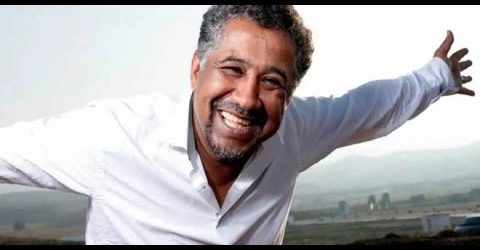

It doesn't matter who you are or where you are from-you walk into Shaherzad, and you feel welcome. Patrons at the bar range from seventy-year-old Egyptian men to Pakistani and Indian teenagers whose grandparents fought against each other in the Punjabi border clashes to Staten Island Gotti wannabes. Yet the place has the feeling of a cultural melting pot, for lack of a better cliché. It's a modest place, dimly lit, furnished with ceramic tables and folding chairs and cheap Salvation Army style couches. What is cool about Shaherzad is that there is nothing specifically cool about it. "Didi"'s mega-success-and the number of records sold pales in comparison to the suspected number of bootlegs, said to be in the tens of millions-is consistent with Khaled's universal appeal. Yet "Didi" is the most well known Arabic pop song to ever be released. The most common interpretation is "take, take," referring to what lies beneath a girl's short skirt and her "young, 'sleepy' eyes," but even that is disputable. Even for 35 million Algerian Arabic speakers, the phrase can mean a number of things, or nothing, depending on regional dialect.

In 1992, over one million people in forty-nine countries from France to India bought copies of Khaled's "Didi." For listeners in about forty-eight of those countries, "Didi"'s lyrics make no sense.


And that was how first I crossed paths with Khaled Hadj Brahim, the "King of Raï," and a major inspiration to me and millions of other listeners around the world. "Nice work, congratulations, habibi!" he said to me. Marco grinned as he saw Nick and I dancing with two gorgeous Egyptian women. It was impossible not to get dragged into the madness-Nick and I soon found ourselves dancing to the hard driving, bassy rhythm and singing along to the nonsensical yet unforgettable chorus "Di-di ouah, di-di, di-di-di-di zidine!" I watched, amazed, as everyone in the café sang along to not just the lyrics, but to the super-catchy horn refrain as well. In the second the groove kicked in, everyone rose up out of their seats and began dancing as the Shaherzad café seemed to transform itself into a scene from a Bollywood musical. Nick, my best friend, a first-timer, shot me a "what the fuck?" look as he blew some sweet-smelling smoke towards a ventilator. "Didi! Yalla yalla!" Marco, the waiter, threw his head back and laughed, a machine-gun, guttural "huh-huh-huh," his eyes crinkling, as a darbuka rhythm came on the big-screen TV. Photo from the Khaled website Cheb Becomes Cheikh: The King of RaiĪt Shaherzad, a hookah café in Edison, New Jersey-the town where I grew up-sometimes people like to dance. Perfect Sound Forever: Khaled, King of Rai


 0 kommentar(er)
0 kommentar(er)
